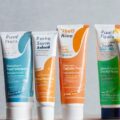Introduction
Maintaining good oral hygiene is essential for overall health, but there’s some debate about whether you should rinse your mouth after brushing your teeth. This article will explore the benefits and drawbacks of rinsing post-brushing and provide you with insights to help you decide what’s best for your dental care routine.
The Traditional Approach to Brushing
Most of us grew up with the routine of brushing our teeth twice a day, followed by rinsing our mouth to get rid of the toothpaste. This conventional method feels natural and leaves the mouth feeling clean and fresh. However, recent studies and dental experts suggest that this might not be the most effective way to protect your teeth.
Why You Might Consider Not Rinsing
Fluoride is a key ingredient in toothpaste that helps to strengthen tooth enamel and prevent cavities. When you rinse your mouth immediately after brushing, you wash away much of the fluoride before it has a chance to work. By not rinsing, you allow the fluoride to remain on your teeth longer, offering extended protection.
According to the UK’s National Health Service (NHS), spitting out excess toothpaste rather than rinsing ensures that the fluoride continues to protect your teeth throughout the day.
Potential Drawbacks of Not Rinsing
While not rinsing has its benefits, there are also some potential drawbacks. Some people may find the lingering taste of toothpaste unpleasant, and it could cause irritation in the mouth. Furthermore, certain individuals with sensitive gums may experience discomfort if they don’t rinse after brushing.
Balancing Your Oral Hygiene Routine
If the idea of not rinsing doesn’t appeal to you, there are alternative ways to maximize the benefits of fluoride. Consider using a fluoride mouthwash at a different time of the day, such as after lunch, to reinforce fluoride protection without disrupting your brushing routine. Additionally, make sure to choose a toothpaste with a high fluoride content for optimal dental health.
Expert Opinions
Dental professionals have mixed opinions on this topic. Some advocate for not rinsing to maximize fluoride benefits, while others believe that a clean feeling mouth is just as important. It’s worth consulting with your dentist to get personalized advice tailored to your specific needs and dental health.
Conclusion
Whether you choose to rinse or not rinse after brushing largely depends on personal preference and individual dental health needs. Understanding the benefits and drawbacks can help you make an informed decision. Remember, the goal is to maintain a healthy mouth and strong teeth, so choose the routine that works best for you.
FAQ
1. Is it bad to rinse your mouth after brushing?
Rinsing your mouth after brushing can wash away fluoride from your toothpaste, potentially reducing its effectiveness in protecting your teeth. However, it ultimately depends on personal preference and dental health needs.
2. What should I do instead of rinsing?
Consider spitting out the excess toothpaste without rinsing to allow fluoride to remain on your teeth. Alternatively, use a fluoride mouthwash at a different time of the day.
3. Can not rinsing cause any issues?
Some people may find the lingering taste of toothpaste unpleasant or experience irritation. It’s essential to listen to your body and adjust your routine if you encounter any discomfort.
4. How long should I leave fluoride on my teeth?
To maximize the benefits of fluoride, avoid eating or drinking for at least 30 minutes after brushing. This allows the fluoride to penetrate and strengthen your tooth enamel effectively.
5. Should I consult my dentist about rinsing?
Yes, it’s always a good idea to consult your dentist for personalized advice on your dental care routine. They can provide recommendations based on your specific oral health needs.









